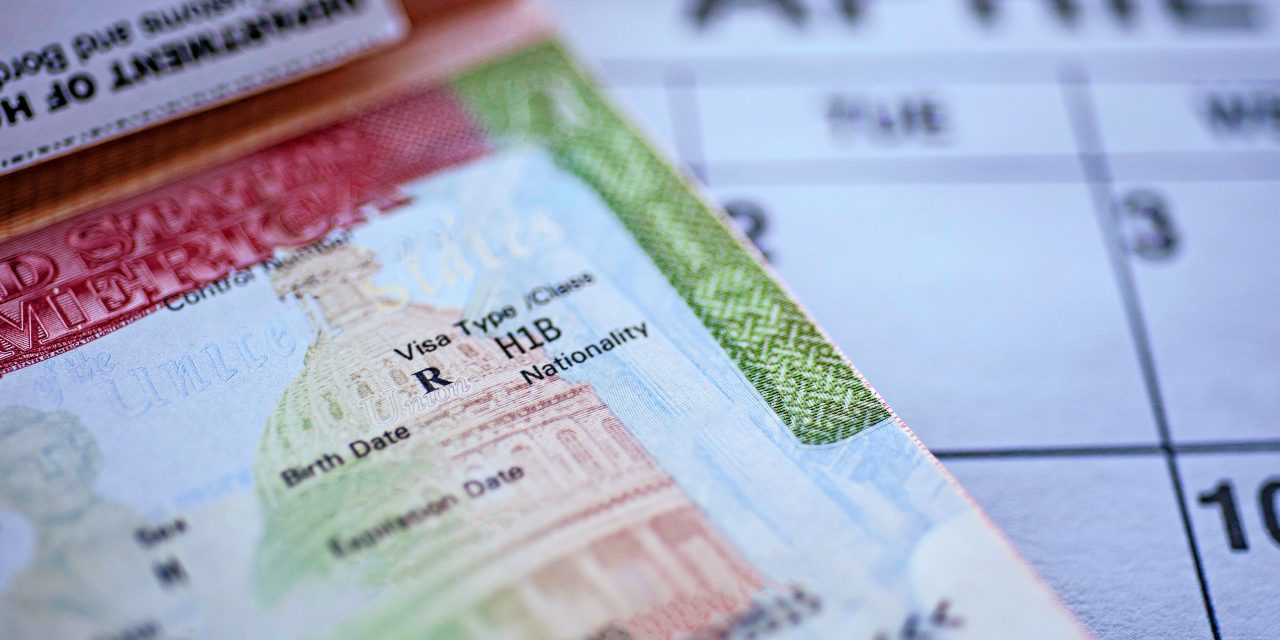The Department of Homeland Security (DHS) recently issued a final rule changing the way U.S. Citizenship and Immigration Services (USCIS) selects the registrations of U.S. employers that want to file H-1B petitions subject to the annual “cap.”
The end result could dramatically reduce the number of recent foreign graduates who can work in the United States and may even trickle down to whether foreign students choose to study here.
Instead of purely random selection, USCIS will give preference to jobs with the highest wages in the particular occupation and area of employment. Yet the law establishing the H-1B visa category does not provide for wage level selection.
The H-1B visa category is for jobs that require a worker to apply a body of highly specialized knowledge acquired through a bachelor’s or higher degree in a “specific specialty” or equivalent at the entry level.
There are four wage levels that are supposed to correspond to the education, experience, and supervision required. Level 1 is “entry level;” Level 2 “qualified;” Level 3 “experienced;” and Level 4 “fully competent.”
The effect of this change is that no Level 1 wage registrations and likely only 75% of Level 2 wage registrations will be selected to file petitions for the H-1B “cap” visa numbers. A company that offered an entry-level job to a recent foreign graduate of a U.S. university would not have that registration selected.
A U.S. employer already must pay an H-1B worker the higher of either the prevailing wage for the job’s occupational classification in the area of intended employment or the actual wage the employer pays to its workers with “similar experience and qualifications.” U.S. employers are prohibited from hiring an H-1B worker at a wage or under working conditions less favorable than comparable U.S. workers.
The likely result of this change will be that recent foreign graduates of U.S. universities will not be able to work in the United States. If recent foreign graduates will not be able to work, then foreign students are less likely to attend U.S. universities. Start-up companies and even more established smaller employers may also be unable to hire H-1B workers.
The agency received over 1,000 comments despite providing only 30 days for comment. In responding to the negative comments, USCIS repeatedly asserted that while random selection is not optimal for H-1B visa number allocation, the agency believes that using wage levels is “consistent” or “more consistent” with the “primary purpose” of the law.
But the very definition of “specialty occupation” refutes this assertion.
A specialty occupation requires the “theoretical and practical application of a body of highly specialized knowledge” and a “bachelor’s or higher degree in the specific specialty or its equivalent” at the entry-level.
Wage levels are primarily based on years of experience—which does not equate with DHS’ repeated mantra of hiring the “best and brightest.”
USCIS also claimed employers could just pay the noncitizen more so they fall into the higher wage level.
This response demonstrates either ignorance of or disdain for the responsibility of employers to have fair and consistent practices in setting salaries. In the real world, it is highly unlikely that an employer is going to offer a recent graduate the same salary as an employee with years of experience.
If the final rule takes effect on March 9, the new selection process would apply to 2020 registration submissions for H-1B visa numbers available as of October 1, the start of fiscal year 2021.
The Biden administration is expected to delay the start of any rules published but not yet in effect as of January 20. The exact length of the delay will depend on the wording of the Biden administration’s memo.
When the Obama administration took office, effective dates were delayed by 60 days. If the Biden administration follows this approach, then the effective date would be delayed until May. If USCIS plans to have an initial registration period in March, like it did in 2019, then this would effectively postpone the selection change for a year.
If and when it becomes effective, the final rule is likely to be challenged in court as an unlawful agency action. Plaintiffs may be from the business and the academic communities.
FILED UNDER: H-1B, USCIS


